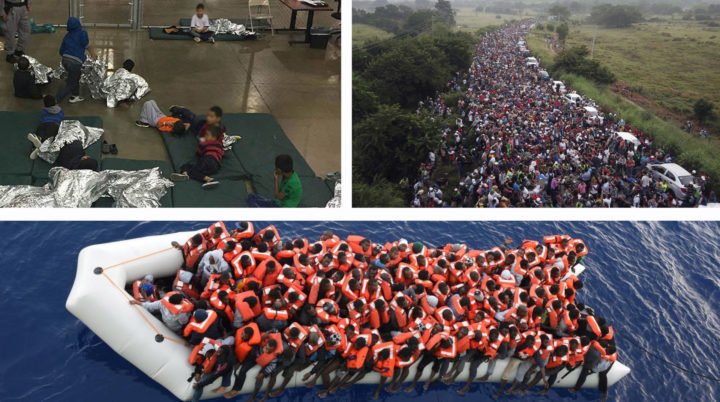During Marie Dutrepont’s interview by Pressenza, Marie described the process and unbearable situation in the Moria (Lesvos) concentration camp in Greece. She described day-to-day conditions in a camp designed for 2500 people but that now hosts 25,000. She spoke of the fears and risks for women going the bathroom at night. Most astonishing is her description of the institutionalized physiological torture carried out by the European Union against the refugees.
“When I was there, we were about 6 lawyers for, at the time, 7-8,000 people,” she said. “So there is not enough to prepare people properly. And there is no assistance. Here in Belgium, when someone applies for asylum, I accompany him to his hearing. Over there, it was almost impossible; there is no authorization, foreign lawyers are not allowed to accompany them, etc. Everything is so problematic at all levels. There is really nothing that goes, whether it be in terms of information, transmission of information, clarity… even for lawyers specialized in asylum law, we often understood nothing, the ability of the rules that change all the time…”
I was flabbergasted listening to this interview by the similarities between the techniques and strategies used by the European Union and those by ICE in the U.S. How can two very different structures — the E.U. with 27 countries and the U.S. government — develop and apply the same illegal actions against asylum seekers coming from war-torn and violent regions. These are two different political systems with very different structures and legal processes.
We have all seen the atrocious images of Latinx families being separated under ICE custody, with small children being kept alone in cages. We have also seen how caravans from Central America are being stopped at the Mexican border, placing those migrants at the mercy of local cartels. We have also seen these migrants and refugees becoming shipwrecked in the Mediterranean. “If we do not intervene soon, there will be a sea of blood,” said Carlotta Sami, spokeswoman for the UN refugee agency, UNHCR, in Italy.
The E.U. could have easily put economical sanctions against the U.S for human rights violations and the U.S. could have done the same against the E.U.; of course neither happened, yet both, strangely, kept putting sanctions on Russia, Iran, Venezuela, and so on.
This situation is only possible coming from a cultural mindset of white people believing that they are the center of the universe and can do whatever they please (at any cost), disregarding all international law (agreements signed by all parties). The most intolerable part of this is that at the base of their immigration strategy is discrimination and racism. Many countries in the world are dealing with refugees in proportion far beyond what the “White-West” has ever accepted. Bangladesh, for example, one of the world’s poorest countries, accepted more refugees proportionately than France, Belgium, U.S., Norway, Finland, Netherlands, Spain, Hungary, Portugal and Ireland (if you want to see details go to Cato.org.)
In truth, it goes far beyond a simple case of discrimination or racism; it displays a deep belief that the White-West has rights above any other culture, and is free to use any justification (democracy, human rights, free trade, free speech, and so on) to impose itself. It has been so deeply ingrained in our culture, for thousands of years, that it has become somewhat complicated to see it from the inside — like a fish who does not question the water. We don’t see that it’s not human to cage children in camps, it’s not human to kill someone with a knee, it’s not human to empty a pistol into someone else’s back, it’s not human to keep using forms of energy that destroy our own environment, this it’s not human to keep access to economical resources from the majority of people just to satiate an unmanageable capitalist monster.
Europe and the U.S. need to accept asylum seekers and we need to treat them well. We need to do something in our heads and hearts to transform an uncomfortable situation into a valid action that we want to repeat. This transformation could open our horizon to a new set of beliefs and values, not based on fears but on experiences of actions done well. We can’t let people of color fight this alone: after all, they didn’t create the problem in the first place and it is our responsibility to fix this historical error before it is too late.






